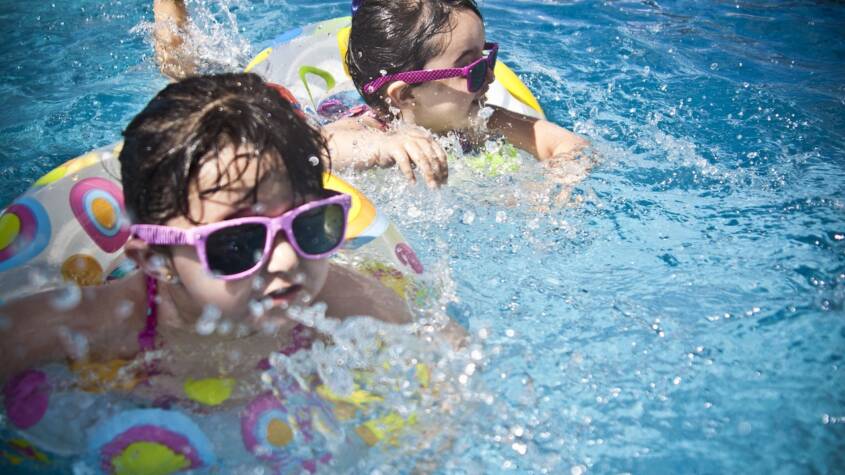
Learning to swim is an essential skill for children that combines safety with enjoyment. Kids swimming lessons provide a structured environment where children can build confidence in the water while developing technique and stamina. These lessons not only teach fundamental swimming skills but also promote physical fitness and can foster lifelong habits related to health and safety.
Parents often wonder when is the best time to start lessons for their little ones. While many programs accept children as young as six months, starting between the ages of four to six often yields the best results in terms of comprehension and engagement. Through engaging methods and playful instruction, kids can learn to swim while having fun, making the experience enjoyable.
Choosing the right swimming program is crucial for successful learning. Factors to consider include the instructor’s qualifications, class size, and the teaching philosophy of the program. By selecting quality lessons, parents can help ensure that their children acquire vital swimming skills in a safe and encouraging environment.
Benefits of Swimming for Children
Swimming offers numerous advantages that contribute to a child’s physical, cognitive, and social development. It promotes health, enhances safety awareness, and fosters vital skills from an early age.
Physical Health Advantages
Swimming is an effective full-body workout that helps children build strength, endurance, and flexibility. Engaging in regular swimming lessons can support cardiovascular health and lung capacity, boosting overall fitness levels.
Benefits include:
- Muscle Development: Children strengthen major muscle groups, promoting physical growth.
- Coordination and Balance: Swimming improves motor skills and balance through varied movements.
- Weight Management: Regular activity can help prevent childhood obesity, establishing healthy habits early on.
These physical health benefits contribute to a child’s ability to engage in various sports and activities throughout their lives.
Cognitive and Social Skills Development
Swimming lessons are not just about physical activity; they also enhance cognitive development and social skills. As children learn to swim, they develop problem-solving abilities and increase their awareness of their environment.
Key aspects include:
- Focus and Discipline: Learning strokes requires concentration, which promotes mental resilience.
- Social Interaction: Group lessons encourage teamwork and communication with peers.
- Confidence Building: Mastering swimming techniques helps build self-esteem and encourages taking on new challenges.
These cognitive and social benefits set a solid foundation for future learning and interpersonal relationships.
Safety and Drowning Prevention
A crucial advantage of swimming lessons is safety awareness. By learning to swim, children acquire essential skills that reduce the risk of drowning, which is a significant concern.
Key safety benefits include:
- Water Awareness: Understanding water environments helps children recognize potential hazards.
- Survival Skills: Lessons teach methods for self-rescue and how to assist others in distress.
- Emergency Procedures: Children learn appropriate responses to emergencies, increasing their ability to handle dangerous situations.
These skills are vital for ensuring children’s safety around water throughout their lives.
Selecting the Right Swimming Program
Choosing the right swimming program involves several critical factors. Understanding age-appropriate levels, the importance of certified instructors, class size and structure, and methods for progress tracking will help in making an informed decision.
Age-Appropriate Levels
Selecting a program that offers age-appropriate levels is crucial for effective learning. Different age groups possess varying physical abilities and emotional readiness. Swimming programs often categorize levels based on age, typically ranging from infants to teenagers.
For example:
- Infant (6 months – 3 years): Focuses on comfort in water and basic safety skills.
- Preschool (3 – 5 years): Introduces basic strokes and improves confidence.
- School Age (6 – 12 years): Concentrates on stroke techniques and endurance.
Programs structured this way encourage progression at each stage, fostering confidence and skill development.
Certified Instructors
Qualified instructors greatly enhance the learning experience. They should have certifications from recognized organizations, ensuring they follow safety protocols and effective teaching methods.
When evaluating instructors, consider:
- Certifications: Look for credentials like CPR, First Aid, and lifeguard training.
- Experience with children: Instructors familiar with teaching kids can adapt their methods to different learning styles.
- Continuous education: Instructors who engage in ongoing training stay updated on best practices and teaching techniques.
A knowledgeable instructor can significantly impact a child’s comfort and progress in the water.
Class Size and Structure
Class size directly influences the quality of instruction. Smaller classes tend to offer more individual attention, which is crucial for skill acquisition.
Consider the following regarding class structure:
- Ratio of instructors to students: A recommended ratio is 1:4 for beginner classes.
- Class length: Sessions typically last 30-45 minutes, balancing enough time for learning without overwhelming students.
- Flexibility of schedule: Look for programs that allow for makeup classes or adjust timing as needed.
A well-structured class will facilitate a supportive environment conducive to learning.
Progress Tracking and Feedback
Monitoring progress is essential for both parents and children. Programs should include regular assessments to track skill advancement.
Key aspects to consider include:
- Frequent evaluations: Ensure that instructors provide feedback during sessions.
- Parent communication: Some programs may offer reports or meetings to discuss progress.
- Goal-setting: Tracking individual milestones helps motivate children and builds confidence.
Regular updates allow parents to stay informed and support their child’s learning journey effectively.
British Virgin Islands Company Registration Guide for 2025 Compliance and Benefits
The British Virgin Islands Company Registration process is straightforward, efficient, and…








